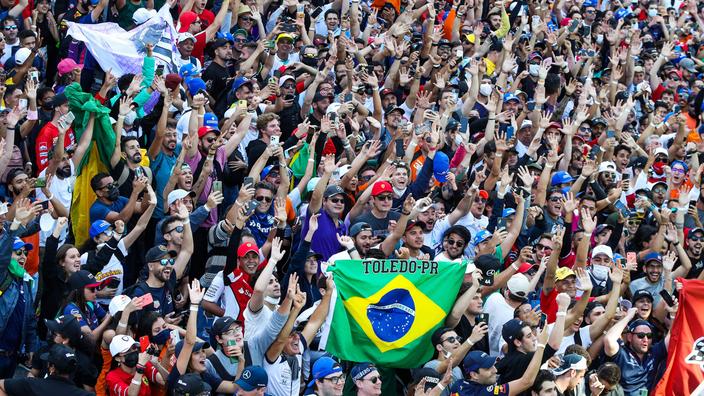Jean-Christophe Gallien is a political scientist and communicator, lecturer at the Sorbonne University of Paris, president of JCGA and member of the Society of European Affairs Professionals.
An unprecedented wind of victories for the left is blowing over Latin America. Launched long before the ravages of the health crisis, the electoral movement crosses the continent from north to south. In Mexico, then in Bolivia, Peru, and at the end of 2021 in Honduras and Chile… the presidencies go from right to left. The political phenomenon could extend to two large countries, Colombia in May and especially Brazil, the economic and geopolitical giant, at the end of 2022.
The new majorities announced the social revolution with a jumble of increased public services, universal social security and a real redistribution of wealth.
The context remains complex and even hostile for leaders already in the crossfire of a disastrous economic reality, anemic budgets, access to credit, abysmal debts, galloping inflation and a very aggressive opposition in the physical and digital streets.
And the citizens will quickly be adversaries if the promises are not kept.
While more than half of South Americans work in the informal sector, most countries experience mass unemployment.
Millions of people thought they would enter the middle class at the start of 2000. Poverty is now at its highest level in 20 years.
See also Insufficient economic recovery in Latin America to recover lost jobs
Repeated corruption scandals, enrichment of the elites, public education and health services everywhere abandoned, infrastructure in general dilapidation ... popular distrust is total towards public institutions and their leaders whoever they are.
A large part of the voters voted on the left because it is the opposition… of the moment.
It was the overwhelming presidential victory of Andrés Manuel López Obrador that opened the streak in Mexico in July 2018. In 2019, it was the turn of Guatemala and Panama to choose center-left majorities. In Argentina, the same year, the Peronists, themselves driven out due to economic breakdown and corruption, returned to power with Alberto Fernández who also promised a social revolution. In 2020, in Bolivia, the socialist Luis Arce wins by swearing to revive the achievements and the program of the fallen “star” Evo Morales. Also in 2020, this time in Peru, an unknown, Pedro Castillo, provincial teacher becomes President by dominating the right-wing favorite Keiko Fujimori. His populist campaign directed against the elites valued his own life experience laminated by their abandonment.In Honduras this year it is the wife of former President Manuel Zelaya, Xiomara Castro, a leftist candidate, fighting against corruption and drug trafficking, who largely wins the presidential election. At the end of November, in Chile the left still prevails. Gabriel Boric, ex-student leader of the 2011 movements, becomes President against a far-right candidate by promising in particular to increase the taxes of the rich.extreme right by promising in particular to increase the taxes of the rich.extreme right by promising in particular to increase the taxes of the rich.
Never in its history, such a proportion of left majorities, very largely populist and rather anti-American had co-governed Latin America.
Jean-Christophe Gallien
Only Uruguay, Ecuador and El Salvador have resisted the breath of change but never in its history, such a proportion of left majorities, very largely populist and rather anti-American, had co-governed Latin America.
This year it is in Colombia and Brazil that the electoral war will shift.
First in Colombia, next May, for a high-risk presidential election in a country whose political life is no longer dominated by the conflict with the FARC.
Already defeated candidate in 2018, Gustavo Petro, former guerrilla, left mayor of Bogota between 2012 and 2015 is leading the polls ahead of outgoing President Ivan Duque.
Rampant poverty, health collapse, societal polarization, economic chaos… Brazilian society is in crisis or even in confrontation.
Jean-Christophe Gallien
But it is in Brazil, the continental giant and its more than 220 million inhabitants, that an electoral battle will be fought, probably very violent, central both for Latin America, for the USA and more generally for the United States. rebalancing of a new globalization.
Jair Bolsonaro, the incumbent far-right president, has become an outsider in the race for his own re-election.
Rampant poverty, health collapse, societal polarization, economic chaos… Brazilian society is in crisis or even in confrontation.
It is the former president, the icon Lula, just released from his imprisonment, who seems capable of rallying far beyond the left forces and that the polls place largely in a position of victory for this election scheduled for the end of October next.
A Russia that is too distant, and especially concentrated on Africa and the Middle East, it is China which could be the big winner of this regional upheaval by threatening the domination of the USA on its "preserve".
Mobilized by the economic issue, the new leaders appear very open to the overall Chinese strategy of loans and investments in infrastructure and perhaps even for technological collaboration or even in terms of security.
It is a real geopolitical challenge, this time of proximity for the United States which will also have much more difficulty in continuing its pressure in isolation on their adversaries in Cuba, Nicaragua and Venezuela.

